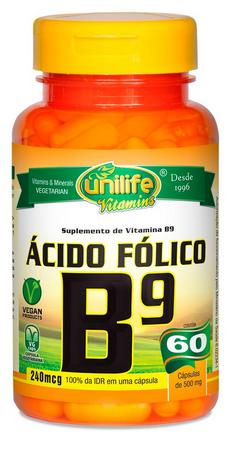
On the benefits offolic acid - not only for pregnancy - so much has been said.
It is important to know, however, that our body does not produce folic acid by itself, but it must take through nutrition also thanks to the production of "friendly" bacteria intestinal bacterial flora.
In cases where there is an increased need or a lack of folic acid, it is good to immediately run for cover, with a correct integration.
Le recommended daily doses of folic acid are between 50 and 200 mcg (micrograms) according to age - with a maximum of 1 milligram per day - and increase pregnant, up to 4 milligrams per day in the case of women at risk for congenital problems.
What are the natural supplements of folic acid? It's not that simple, let's try to understand more.
Folic acid and natural supplements: foods
The ISS, Istituto Superiore di Sanità recommends, in the first place, to increase the intake of folate through the consumption of foods that are richest in itThese are:
> Vegetables such as asparagus, broccoli, artichokes, Brussels sprouts, cauliflower have a high folate content: 300-100 mcg/100g;
> Fruits such as citrus fruits (oranges, clementines, mandarins), avocados, kiwis; dried fruits (walnuts, almonds, hazelnuts) have a good folate content: 99-30 mcg/100g;
> Whole grains have a good folate content: 99-30 mcg/100g;
> Legumes such as beans, chickpeas, lentils, peas have a good folate content: 99-30 mcg/100g;
> Eggs: have a good folate content: 50 mcg/100g.
One note: the cooking destroys about 90% of vitamins contained in food, therefore we recommend the consumption of raw fruit and vegetables.
Read also The five benefits of folic acid >>
Folic acid and natural supplements: fortified foods
It defines itself fortification the process through which they come added - during production - to food some minerals or vitamins of synthetic origin.
It also happens for folic acid; the fortified foods with the addition of synthetic folic acid are above all:
> Breakfast cereals;
> biscuits;
> rusks;
> fruit juices.
A note: moderate use is recommended of foods fortified with folic acid, to avoid excess intake (the maximum daily dose is one milligram).
Folic acid and natural supplements: do they exist?
Taking folic acid supplements is fundamental in pregnancy to prevent malformations of the fetus, or in cases where adiet low in folate, with little fruit and vegetables, or in case of anemia.
In case of deficiencies, the doctor can prescribe the most suitable supplement, or a choice between:
> Supplements natural multivitamins, that contain folic acid combined with other vitamins and minerals, especially vitamin B12, which is also essential. Check that the nutrition table indicates that at least 400 micrograms or 100% RDA of folic acid is provided. Brands that specify that the supplement's folic acid is not synthetic but extracted from fruit or vegetables are preferred.
> The synthetic supplements: often contain folic acid precursors, which our body transforms into folic acid; those that contain folic acid only come in smaller tablets and are easier to swallow.
To ensure the body has the right amount of folate on a daily basis, it would be useful combine supplements with a balanced diet rich in foods containing this vitamin.
A note: a excess folic acid taken with supplements is rarely symptomatic, it could cause abdominal discomfort such as cramps, swelling, diarrhea.


























